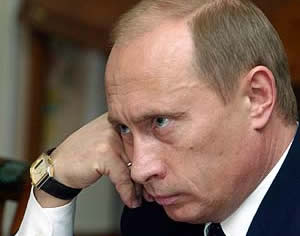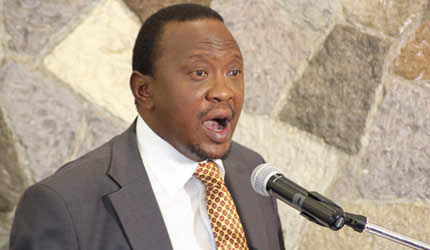Ruto’s ICC trial: First witness testifies

THE HAGUE. — The first witness to appear in the trial of Kenya’s deputy president told the International Criminal Court yesterday how a mob of youths, with painted faces and armed with machetes, torched the church where she and her family had sought refuge. The witness, known only as P-0536 to protect her identity, choked with emotion as she testified against Deputy President William Ruto, who is accused of stoking a wave of killings for political gain after Kenya’s contested 2007 elections.
“The door (to the church) was barricaded with bicycles, and we were all trying to escape,” she said.
“I threw my child out of the window,” she added, her voice cracking with emotion.
Presiding judge Chile Eboe-Osuji, observing that the witness was “emotionally overcome” as a result of her testimony, ordered an adjournment to allow her to recover.
About 1 200 people died in the post-election bloodbath.
Kenyan President Uhuru Kenyatta, who was Ruto’s rival at the time of the 2008 clashes but is now his political ally, is due to face trial in November on similar but separate charges of orchestrating the violence.
Ruto and radio broadcaster Joshua Arap Sang, his co-accused, say witnesses have colluded to give false testimony implicating them in the massacres. Prosecutors say their witnesses have been threatened into staying silent. All three men deny the charges they face.
Early in the hearing, Karim Khan, Ruto’s lawyer, attempted to tell the witness she could face a prison sentence if she gave false testimony. The presiding judge interrupted him, saying he did not want her to feel intimidated.
The judge later relented, reminding the witness of her duty to tell the truth, while stressing he did not suspect her of lying.
The witness was hidden from the public gallery by a curtain that allowed the judges who were facing her to see her.
Her voice was electronically distorted and her face pixilated on screen to make her unrecognisable to anyone watching from outside the courtroom.
Asked by prosecution lawyer Anton Steynberg to describe the events of January 1, 2008, she said a mob of some 3 000 youths descended, singing songs, down the sides of the valley and entered the village of Kiambaa, near the lush city of Eldoret in the Rift Valley region of western Kenya.
Her parents’ home had been burned down the previous night, forcing her to seek refuge with her children in the church along with as many as 2 000 other people.
Describing one of the worst attacks in Kenya’s post-election violence, she said she saw a prominent local politician from Ruto’s party leading the assailants and carrying a jerrycan shortly before the fire started.
“The leaders had cloths tied around their heads, but the youths who were attacking had painted themselves with white clay,” she recalled, prompting Ruto to smile and shake his head vigorously.
The attackers were of Ruto’s Kalenjin ethnicity, she told the court, prompting titters in the public gallery, where some 30 supporters of Kenya’s deputy president, including his wife and daughter, had come to show solidarity.
The cases against Kenya’s two top political leaders, who were propelled to the presidency in elections this year in part by popular anger at the ICC’s charges, have been weakened by the loss of key witnesses in the run-up to the trial. Prosecutors were forced to drop charges against the former head of the civil service, Francis Muthaura, Kenyatta’s co-accused, following the loss of one witness.
The cases have been controversial in Kenya, East Africa’s economic powerhouse, where many have accused the court, based in the Netherlands and primarily funded by rich Western countries, of post-colonial meddling.
Last week, both houses of parliament in the country passed a largely symbolic motion calling for the country to quit the ICC.
The cases are also seen as a test of the credibility of a court which has secured only one conviction since it was set up a decade ago, that of the little-known Congolese warlord Thomas Lubanga, whom it sentenced to 14 years in prison. — Reuters.









Comments